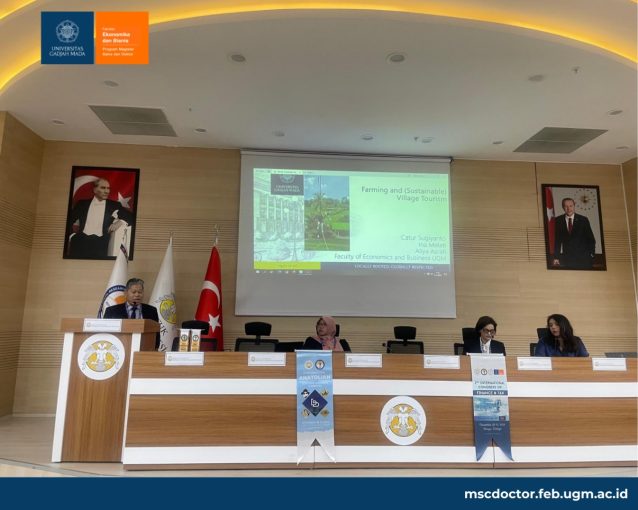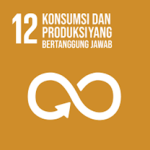
Prof. Dr. Catur Sugiyanto, M.A., an expert in Agricultural Economics from the Faculty of Economics and Business, Universitas Gadjah Mada (FEB UGM), served as a keynote speaker at the 2nd International Congress of Finance and Tax held on November 8–10, 2024, at Selcuk University, Konya, Turkey.
In his keynote address titled “Farming and (Sustainable) Village Tourism,” Prof. Sugiyanto highlighted efforts to ensure the sustainability of natural resources in village tourism areas, using Tinalah Tourism Village as an example. He emphasized the importance of long-term collaboration between village tourism managers and farmland owners to support sustainable rural economies based on agriculture and tourism.
He noted that changing tourist preferences toward adventurous and non-routine activities have created opportunities for the development of village tourism. According to data from Indonesia’s Ministry of Tourism and Creative Economy, there are currently over 1,836 tourism villages in the country. These villages leverage diverse natural landscapes, such as hills, valleys, fruit gardens, terraced rice fields, and rivers, as their main attractions, complemented by farming and local cultural activities. Tinalah Tourism Village, managed by local youth utilizing information technology, offers popular activities such as camping, rafting, hiking, and immersive stays with local farmers.
However, Prof. Sugiyanto pointed out that sustaining village tourism and agricultural activities faces significant challenges and competition. He underlined the critical role of cooperation
agreements or contracts between landowners and tourism groups in maintaining the sustainability of tourism villages. These agreements may include land access for tours or landowners acting as guides.
Additionally, the growth of tourism villages presents unique challenges, such as the push to open new businesses or sell land, which could diminish the village’s appeal. While cafes and restaurants provide additional amenities for tourists, they may reduce the authenticity and quality of village attractions. To address this, Prof. Sugiyanto recommended maintaining long-term collaboration between tourism managers and farmland owners, supported by the enforcement of land zoning regulations to safeguard the sustainability of both tourism and agriculture.
This research supports several Sustainable Development Goals (SDGs), including SDG 8 (Decent Work and Economic Growth) by promoting sustainable local economic activities, SDG 11 (Sustainable Cities and Communities) through environmentally conscious village tourism management, and SDG 12 (Responsible Consumption and Production) by emphasizing sustainable natural resource use.
Prof. Dr. Catur Sugiyanto’s participation in this international conference underscores FEB UGM’s commitment to advocating for the sustainability of natural resources and rural tourism businesses, contributing to the achievement of sustainable development goals.

